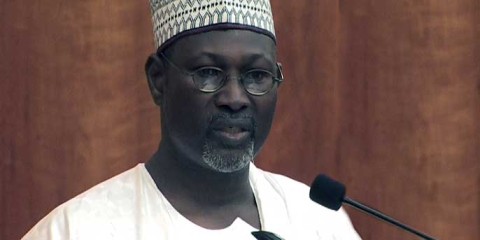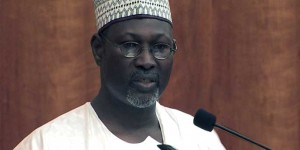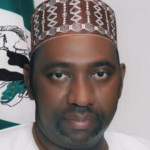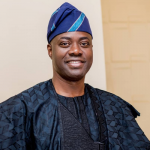Opinion: Pending Tasks Before INEC, By Adewale Kupoluyi
Articles/Opinion, Latest Headlines Friday, November 28th, 2014
Going by the timeline of the Independent National Electoral Commission (INEC), campaigns for presidential and National Assembly elections should commence this month as well as those for governorship and state houses of assembly elections while those of the National Assembly, presidential and governorship as well as State Assembly elections should hold next February. Since the commencement of the Fourth Republic, the nation has been experiencing various challenges in building virile institutions, fighting sectarian crises and corruption in a bid to ensure that good governance and dividends of democracy are enshrined. Our electoral system too has not been spared the series of upheavals troubling us as a nation.
No doubt, the functions of INEC are contained under Section 15, Part 1 of the Third Schedule of the 1999 Constitution (as amended) and Section 2 of the Electoral Act 2010 (as amended). These laws, among other functions, empower the commission to organise elections into elective public offices while that of conducting local government area chairmanship elections, which were hitherto vested in states’ Independent Electoral Commission, is hopefully being transferred to INEC, going by the amendment to the laws. Preparatory to 2015, INEC has, among others, deployed advanced software identification system (ASIS); produced permanent voters cards (PVCs) complete with biometrics, which are readable electronically; commenced continuous voter registration (CVR); updated the electoral register and has set up an Inter-agency Consultative Committee on Election Security (ICCES), to address security concerns.
Despite these laudable efforts, many Nigerians, local and international observers are already expressing their worries over a number of issues that should be sorted out without further delay if we are to truly have free, fair and credible elections in the country. Not a few believe that there’s a relative improvement in our electoral process in terms of computerisation, coding of ballot papers, ballot boxes and polling units. For instance, the distribution of permanent voter cards, as part of efforts towards having comprehensive and up-to-date voter register, got public criticism as the recent nationwide voter registration exercise recorded several irregularities as reported in the states mapped out for the third phase. With a biometric system in place, it is expected that the system should be cleaned of fraudulent registration and manipulation. Not only that, the PVCs are yet to be synchronised with the national identity card, to enable eligible voters participate in elections with minimal paper work. Again, INEC will still have to contend with the problem of voter apathy as this may frustrate genuine efforts at ensure hitch-free elections. It the last exercise, it was reported that less than 50 per cent of registered voters in the states could actually collect their cards since the collection exercise started six months ago and now barely three months to the elections. Hence, unless there is an attitudinal change, many eligible voters might be disenfranchised.
Another factor is the inability to put in place, electronic voting. This will not only make many Nigerians in Diaspora to participate, it would eliminate all shortcomings associated with manual conduct of elections. At the moment, only citizens residing in country at the time of registration of voters can vote at any election, whereas in other countries, their citizens are able to discharge their civic duties due to the opportunity offered by the technology of e-voting. INEC will still need to contend with is the registration and deregistration of political parties. Many political parties seem not sure of their fate. This should be sorted out before they go deep into electioneering. The insecurity pervading the North-East is another grey area that should be addressed. Despite the ongoing terrorist acts by the Boko Haram sect, INEC has assured that it would conduct elections in the area, which is mostly affected by the insurgency that has assumed a more frightening dimension in troubled states.
Increasingly worrisome also is the massive deployment of security personnel and hardware to elections as happened in recent cases in Ekiti and Osun states, where the Nigerian Army, the Nigerian Police, the Department of State Security, the Nigeria Security and Civil Defence Corps, and other security apparatus were deployed in thousands for the governorship elections. The INEC boss, Professor Attahiru Jega, had backed a proposed amendment that would confer the exclusive power to assign security men during elections by limiting the role of the military at such exercises; this is coupled with the appearance of masked security agents suspected to be DSS operatives. This has sparked protests from the opposition party and other Nigerians, who believe that it could serve as an avenue to perpetrate crime. Or, is it not possible to hold free and fair elections without such a barrage of security forces? This feature of military rule is an aberration and should not have a place in any modern day governance. Electoral offenders are still not being punished because of the absence of special electoral offence tribunals constituted for that purpose. INEC should ensure that violators of the electoral law are made to promptly face the full wrath of the law.
As the people eagerly look forward to the future, the wishes of voters should be accurately reflected, a salient consideration that has been in short supply since the 1963 elections in the annals of the nation. Voters should ask aspirants cogent questions that require convincing answers on matters that border on their living. These should cover the pervading insecurity, unemployment, corruption, decadent power, education, health services and infrastructural deficit, just to mention a few. We should seriously be concerned on how informed are the electorate today about issues of franchise and choice in terms of the level of their confidence in the existing structure. Certainly, no government can provide purposeful leadership without having well planned, articulated and sustainable programmes. The aspirants should thoroughly be made to scrutinise intending public office holders and be able to freely determine whether they are fit to be entrusted with their mandate. Apart from public education programmes by the commission, we should be able to know how far have the civil organisations have also gone in preparing the minds of the people for what they should do and be seeing doing. The National Assembly should do more by moving swiftly, to remove all the legal encumbrances hindering INEC from performing its functions creditably and more importantly, the umpire should have the courage to deliver results of elections with absolute sincerity, irrespective of the winners or losers. This time around, the people should get the best from their country. Afterall, that is the real essence of democracy.
Kupoluyi writes from the Federal University of Agriculture, Abeokuta, vide, adewalekupoluyi@yahoo.co.uk, Twitter, @AdewaleKupoluyi
Related Posts
Short URL: https://www.africanexaminer.com/?p=20007





















